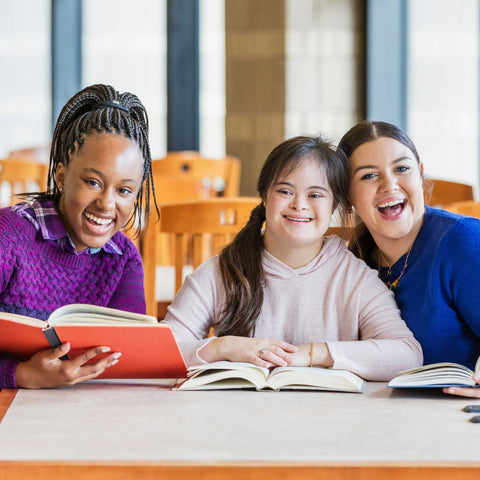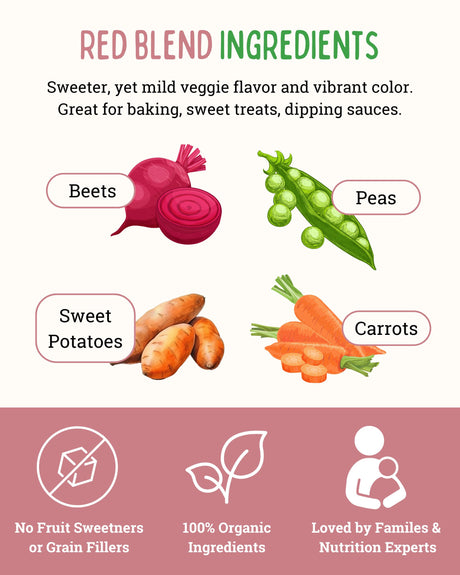World Down Syndrome Day (WDSD) is a globally recognized day celebrated on March 21st each year. It aims to raise awareness about Down syndrome and promote the rights, inclusion, and well-being of individuals with Down syndrome.
Understanding the Prevalence of Down Syndrome
Down syndrome is one of the most common genetic conditions, occurring when an individual is born with an extra copy of chromosome 21. It affects people of all races and economic levels worldwide, with an estimated prevalence of about 1 in every 700 births.
In this blog, we'll delve into the significance of World Down Syndrome Day, exploring its importance in challenging stereotypes and fostering inclusivity. We'll discuss the prevalence of Down syndrome on a global scale and highlight the need to dispel misconceptions surrounding this condition.
Furthermore, we'll provide insights and strategies for promoting acceptance and advocating for the rights of individuals with Down syndrome. Join us in our journey to celebrate diversity and end stereotypes on World Down Syndrome Day.
Definition and Characteristics of Down Syndrome
Down syndrome is a genetic condition caused by the presence of an extra copy of chromosome 21. This additional genetic material affects the development of the individual, leading to various physical and cognitive characteristics. Common features of Down syndrome include low muscle tone, upward slanting eyes, and a flat facial profile.
Individuals with Down syndrome may also experience intellectual and developmental delays, though the severity can vary widely from person to person.
Common Misconceptions and Stereotypes
Despite increased awareness and education, misconceptions and stereotypes about Down syndrome persist in society. Some of the common misconceptions include assumptions about the abilities and potential of individuals with Down syndrome, as well as outdated beliefs about their quality of life and life expectancy.
These stereotypes can contribute to discrimination and exclusion, limiting opportunities for individuals with Down syndrome to fully participate in society.
Importance of Education and Awareness
Society's awareness is crucial in promoting inclusivity for individuals with Down syndrome, breaking down stereotypes and fostering acceptance and respect for all abilities and differences.
Highlighting Unique Abilities and Talents

Individuals with Down syndrome possess a diverse range of abilities and talents that deserve recognition and celebration. From artistic talents to athletic achievements and academic accomplishments, people with Down syndrome contribute valuable skills and perspectives to their communities. By highlighting these unique abilities, we can challenge stereotypes and promote a more inclusive understanding of what it means to live with Down syndrome.
Emphasizing the Importance of Embracing Diversity
It's crucial to recognize and celebrate the diversity within the Down syndrome community. Just like any other group of individuals, people with Down syndrome have their own personalities, interests, and strengths. Embracing this diversity fosters a culture of inclusivity and acceptance where everyone is valued for who they are. By promoting a more inclusive mindset, we can create a society where individuals with Down syndrome are fully included and respected.
Personal Stories and Experiences
Stories from individuals with Down syndrome offer a unique perspective, challenging stereotypes and fostering empathy, thereby humanizing their experiences and inspiring others to embrace diversity and inclusion.
Negative Impact of Stereotypes and Stigma
Stereotypes and stigma surrounding Down syndrome can have detrimental effects on individuals with the condition, contributing to discrimination, exclusion, and low self-esteem. These stereotypes often perpetuate misconceptions about the abilities and potential of individuals with Down syndrome, leading to limited opportunities and barriers to full participation in society. By acknowledging the harmful impact of stereotypes, we can work towards creating a more inclusive and supportive environment for individuals with Down syndrome.
Strategies for Confronting Misconceptions
The syndrome, a condition characterized by a condition characterized by a condition characterized by a genetic disorder, is often misunderstood. However, through the sharing of personal stories and education, a more accurate understanding of this condition can be achieved.
Advocacy Efforts and Initiatives
Advocacy efforts are crucial in challenging stereotypes and stigma surrounding individuals with Down syndrome. These efforts aim to promote inclusive policies and practices in education, employment, healthcare, and community settings.
Accurate media representation and ending stereotypes contribute to a more inclusive society, fostering greater acceptance and inclusion for individuals with Down syndrome.
Importance of Inclusive Education

Inclusive education plays a vital role in empowering individuals with Down syndrome by providing them with equal opportunities to learn and thrive alongside their peers. By fostering a supportive and inclusive learning environment, individuals with Down syndrome can develop their skills, build relationships, and reach their full potential.
Inclusive education not only benefits students with Down syndrome but also promotes acceptance and understanding among their peers, teachers, and the broader community.
Success Stories in Various Fields
Syndrome individuals' success stories challenge stereotypes and showcase diverse talents, challenging stereotypes and promoting a more positive perception of their unique abilities across various fields, including academics, artistic talents, and entrepreneurial ventures.
Advocating for Equal Opportunities in Employment
The syndrome of Down necessitates equal opportunities in the workforce, allowing individuals with this condition to fully participate and contribute to their communities. Employers are recognizing their unique perspectives and inclusive hiring practices.
Addressing Challenges Faced by Families
Raising a child with Down syndrome can present unique challenges for families, including navigating healthcare systems, accessing specialized services, and addressing societal attitudes and stereotypes.
It's essential to acknowledge and address these challenges openly and compassionately, providing support and resources to families as they navigate their journey.
Providing Resources and Support Networks
Offering resources and support networks for families and caregivers is crucial in helping them access the information and assistance they need to support their loved ones with Down syndrome effectively.
This includes connecting families with healthcare professionals, educational specialists, and community organizations that specialize in supporting individuals with Down syndrome and their families.
Importance of Fostering a Supportive Community
Fostering a supportive and inclusive community for individuals with Down syndrome and their families is essential for promoting acceptance, understanding, and belonging. By creating spaces where individuals with Down syndrome and their families feel valued and supported, we can help combat stigma and create a more inclusive society where everyone can thrive.
Strategies for Raising Awareness
Raising awareness about Down syndrome and challenging stereotypes is a crucial step in promoting understanding and acceptance. Strategies can include sharing educational resources, hosting awareness events, and engaging with media to ensure accurate and positive portrayals of individuals with Down syndrome.
By amplifying the voices and stories of individuals with Down syndrome, we can help dispel myths and misconceptions and foster a more inclusive society.
Encouraging Community Involvement
Encouraging community involvement and participation in World Down Syndrome Day events is an excellent way to show support and solidarity. Communities can organize events such as fundraisers, awareness walks, and educational workshops to promote understanding and celebrate the contributions of individuals with Down syndrome.
By coming together as a community, we can raise awareness, advocate for change, and create a more inclusive world for everyone.
Advocacy Efforts for Policy Changes
Advocacy efforts to promote policy changes are essential for improving the lives of individuals with Down syndrome. This can include advocating for legislation that supports inclusive education, accessible healthcare, and employment opportunities for individuals with Down syndrome. By working together to advocate for policy changes, we can ensure that individuals with Down syndrome have equal rights and opportunities to lead fulfilling lives.
Promoting Self-Advocacy and Empowerment

Promoting self-advocacy and empowerment among individuals with Down syndrome is essential for fostering independence and confidence. By providing opportunities for individuals with Down syndrome to voice their opinions, make choices, and advocate for themselves, we empower them to take control of their lives and pursue their goals.
Through self-advocacy, individuals with Down syndrome can assert their rights, express their needs, and contribute to positive change in their communities.
Highlighting Opportunities for Participation
Highlighting opportunities for individuals with Down syndrome to participate in decision-making processes is crucial for promoting inclusion and representation. Whether it's through participation in school meetings, community organizations, or advocacy groups, individuals with Down syndrome have valuable perspectives to contribute.
By actively involving individuals with Down syndrome in decision-making, we ensure that their voices are heard and respected, leading to more inclusive and equitable outcomes for all.
Celebrating Achievements and Milestones
Celebrating achievements and milestones of individuals with Down syndrome is a powerful way to recognize their talents, resilience, and contributions. Whether it's graduating from school, landing a job, or achieving a personal goal, every accomplishment deserves to be celebrated. By highlighting the achievements of individuals with Down syndrome, we challenge stereotypes and showcase the diverse talents and capabilities within the community. Celebrating these milestones also helps to inspire and motivate others to reach for their dreams.
Importance of Education and Awareness
Education and awareness play a vital role in promoting acceptance and understanding of Down syndrome within society. By providing accurate information and dispelling myths and misconceptions, we can challenge stereotypes and foster a more inclusive and accepting environment for individuals with Down syndrome. Through education, people learn to appreciate the diversity and unique abilities of individuals with Down syndrome, leading to greater acceptance and support.
Providing Resources and Educational Materials
Providing resources and educational materials is key to raising awareness and promoting acceptance of Down syndrome. These resources can include fact sheets, videos, books, and online articles that provide accurate information about Down syndrome and address common questions and concerns. By making these resources readily available, we empower individuals and communities to educate themselves and others about Down syndrome, leading to greater acceptance and understanding.
Encouraging Conversations and Dialogue
Encouraging conversations about the syndrome is crucial for promoting acceptance and inclusion, breaking down barriers, challenging stereotypes, and building stronger connections within communities, ultimately creating a more supportive and inclusive society.
Ending Stereotypes and Promoting Inclusivity

In this blog, we've explored the significance of World Down Syndrome Day and the importance of ending stereotypes and promoting inclusivity for individuals with Down syndrome.
By challenging misconceptions and fostering a more inclusive society, we can create a world where everyone is valued and respected for who they are.
Celebrating Diversity and Embracing Individuals with Down Syndrome
It's crucial to celebrate the diversity and unique abilities of individuals with Down syndrome. Instead of focusing on limitations, let's celebrate their strengths, talents, and contributions to our communities. By embracing diversity, we create a more vibrant and inclusive society where everyone has the opportunity to thrive.
Joining the Movement for Inclusivity
As we commemorate World Down Syndrome Day, let's commit to being advocates for change. Together, we can work towards creating a more inclusive and accepting society where individuals with Down syndrome are valued and respected. Join the movement by raising awareness, challenging stereotypes, and promoting inclusivity in your community. Together, we can make a difference and create a brighter future for individuals with Down syndrome.
Leave your comments below; we love to hear from you! And don't forget to follow Easy Peasie for more veggie info and convo on YouTube, Facebook, and Instagram! ~ThePeas













